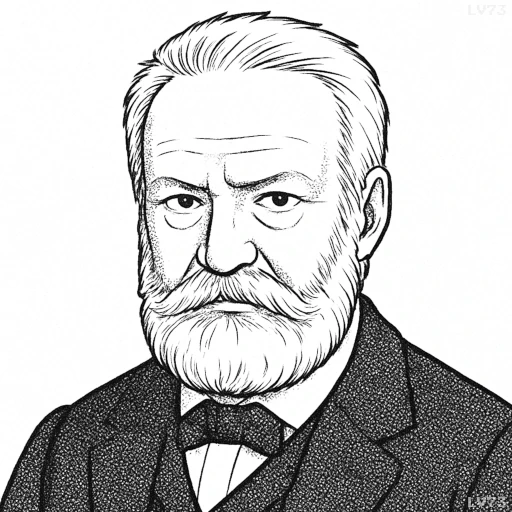“It is nothing to die. It is frightful not to live.”

- February 26, 1802 – May 22, 1885
- Born in France
- Author, poet, playwright
table of contents
Quote
“It is nothing to die. It is frightful not to live.”
Explanation
Victor Hugo’s quote reflects his profound view on the value of life and the human experience. He suggests that death, in itself, is not the ultimate fear; what is truly terrifying is not fully living—not engaging with the opportunities, joys, challenges, and passions that life offers. Death, for Hugo, is a natural and inevitable part of existence, but the failure to truly live, to experience life with purpose, passion, and authenticity, is the true tragedy. This perspective emphasizes the importance of embracing life to its fullest, rather than fearing the end of it.
Hugo’s focus on living fully connects with his broader Romantic ideals, where he advocated for a life driven by emotion, freedom, and a deep connection to one’s values. The quote encourages individuals to seize the experiences and challenges that life presents, to pursue meaningful goals, and to engage deeply with the world around them, rather than passively allowing life to slip by. For Hugo, the absence of active participation in life is a greater loss than death itself.
In modern contexts, this quote can inspire reflection on how we approach our lives. It reminds us that the quality of our lives is defined not by its length, but by how fully we engage with our passions, relationships, and the pursuit of personal growth. In a society often preoccupied with comfort, success, or fear of the unknown, Hugo’s words challenge us to ask whether we are truly living—in the truest, most meaningful sense—or merely existing.
Would you like to share your impressions or related stories about this quote in the comments section?




